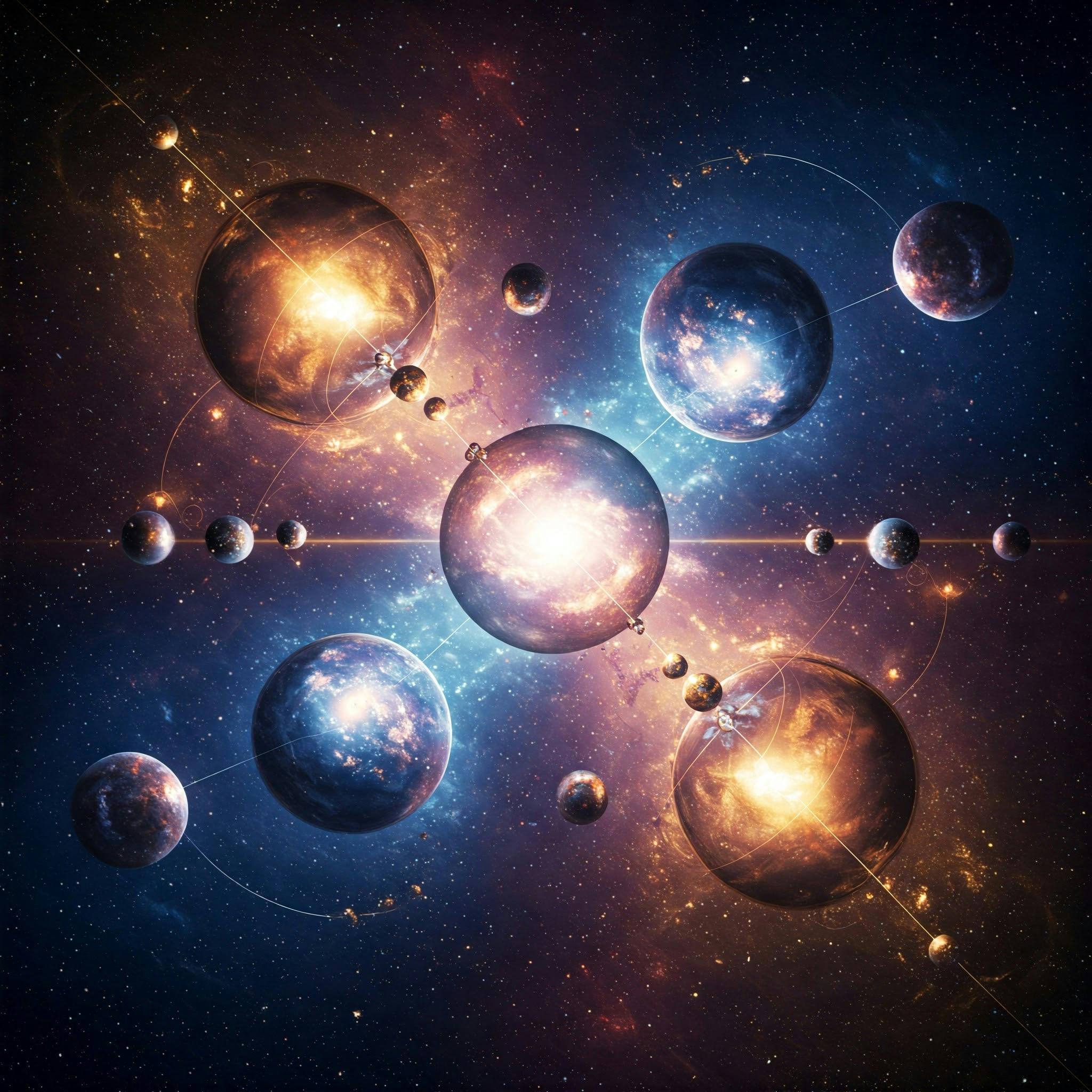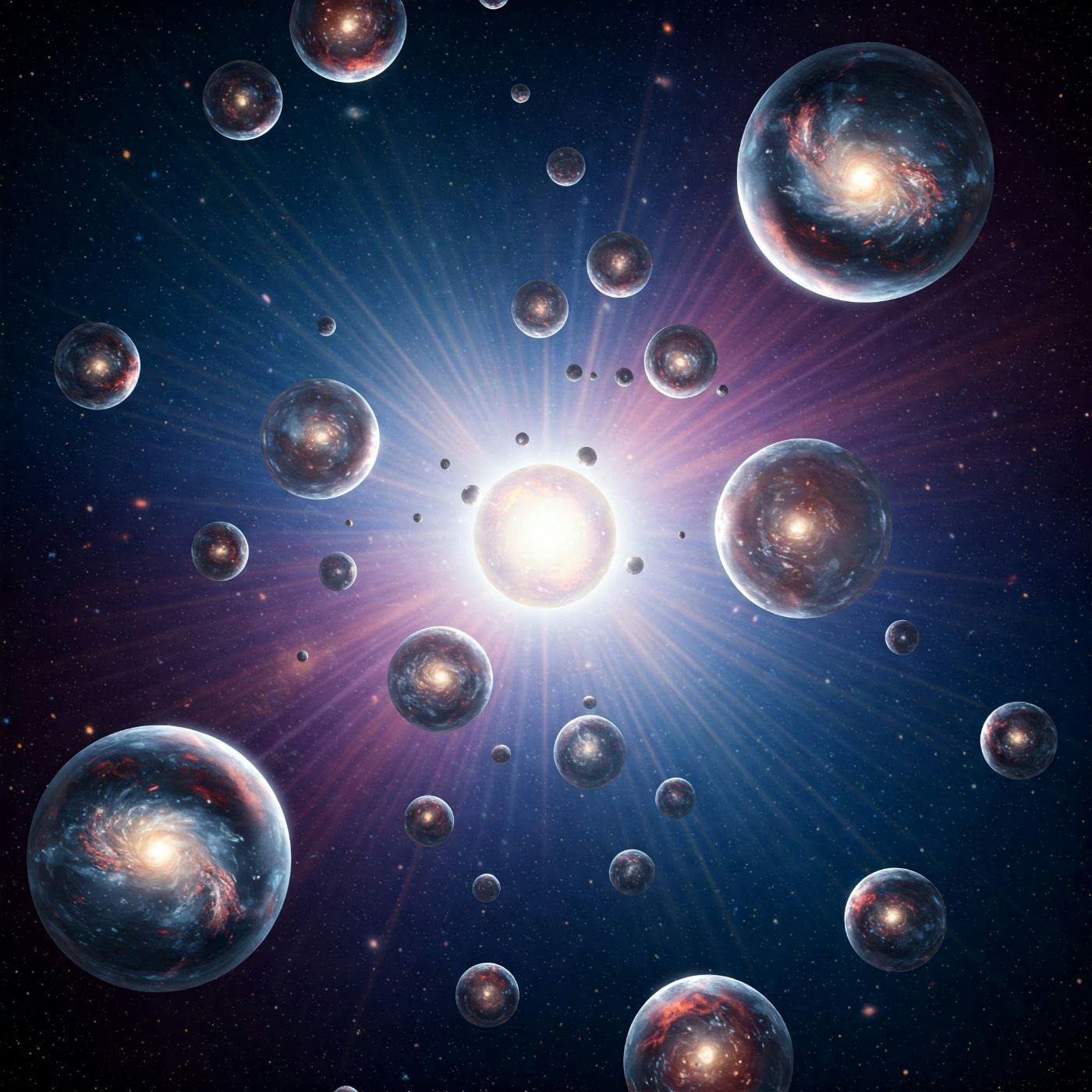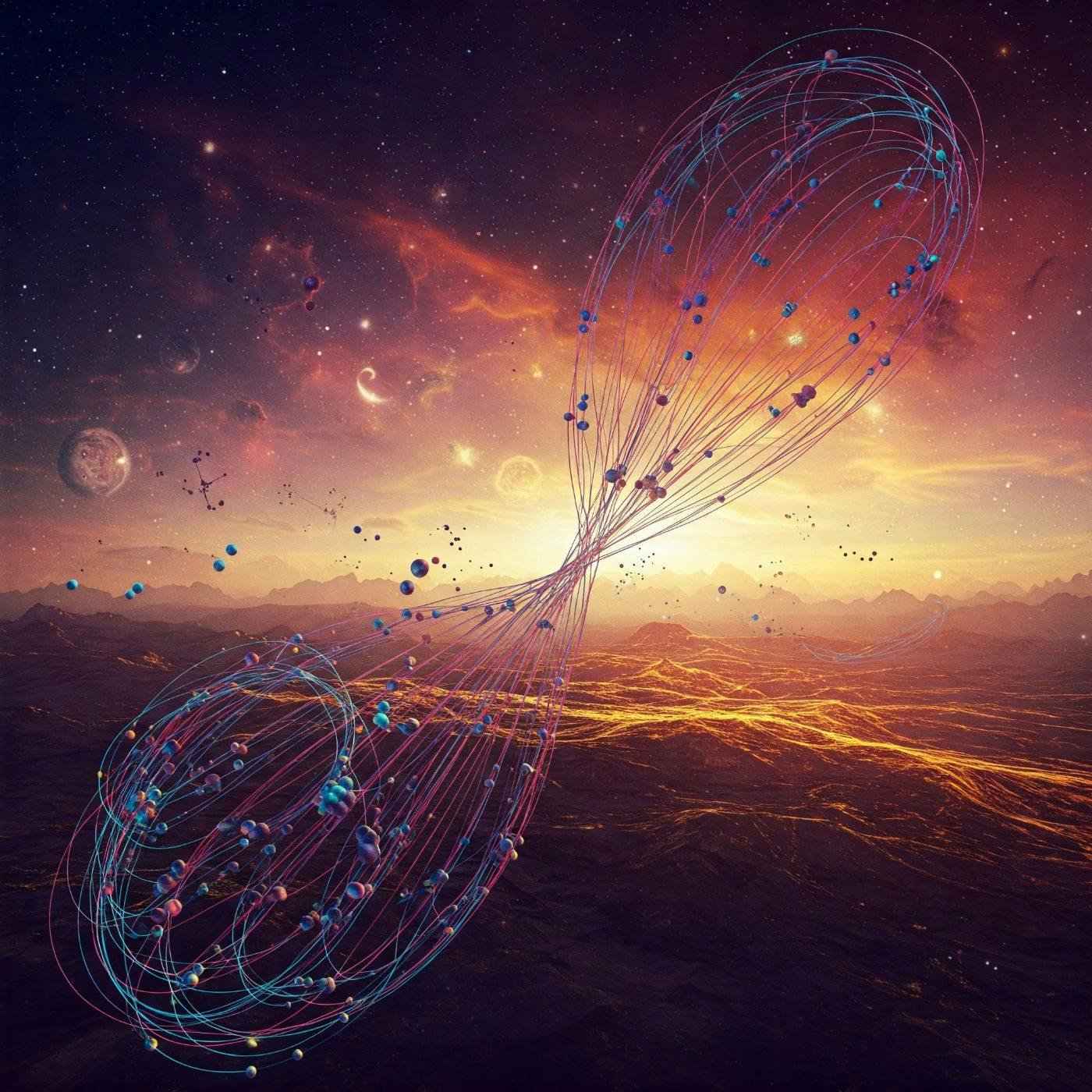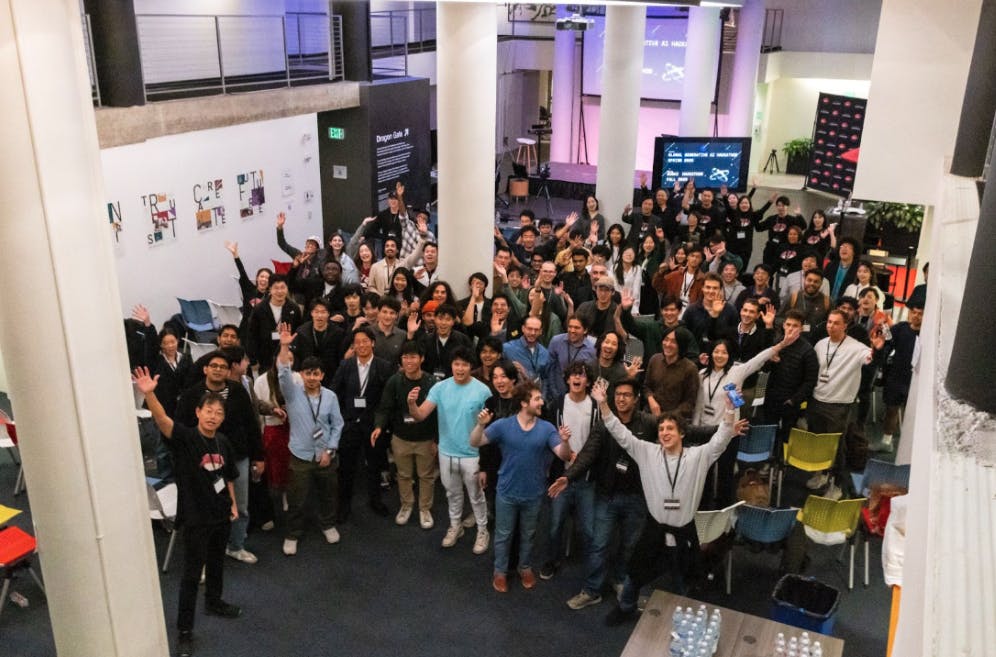Ever feel like you made a different choice in another life? What if that other life is playing out right now, in a universe running parallel to our own? The concept of parallel universes, or the “multiverse,” sounds like pure science fiction, ripped from the pages of comics or the latest blockbuster movie. But what if it’s more? This isn’t just fantasy; it’s a fascinating possibility emerging from the bleeding edge of theoretical physics and cosmology.
This article dives into the surprisingly scientific foundations behind the multiverse hypothesis. We’ll explore the leading theories – from the strange rules of quantum mechanics to the echoes of the Big Bang – that suggest our universe might be just one of countless others. We’ll also touch upon the profound philosophical questions these ideas raise and why understanding these cosmic possibilities is relevant, even essential, in an age pushing the boundaries of computation and reality itself. Get ready to question everything you thought you knew about existence.
What Exactly Are Parallel Universes? Demystifying the Multiverse
At its core, the multiverse is a hypothetical collection of potentially diverse universes, including the one we inhabit. Think of it not necessarily as endless identical copies of our world, but as a vast ensemble of universes, potentially governed by different physical laws, possessing different fundamental constants, or having unfolded with entirely different histories after their own Big Bangs. Some might be sterile and empty, others fantastically alien, and some, perhaps, eerily similar to our own. The scale is mind-boggling: our entire observable universe could be just one bubble in an infinite cosmic ocean.
It’s Not Just Sci-Fi: The Science Behind the Speculation
While definitive proof remains elusive, the idea of a multiverse isn’t just pulled from thin air. It arises naturally from several branches of modern physics trying to explain the fundamental workings of reality.
The Quantum Leap: Everett’s Many-Worlds Interpretation (MWI)
Quantum mechanics, the physics of the very small, is notoriously weird. One of its central puzzles involves measurement: a quantum system (like an electron) can exist in multiple states at once (a superposition) until it’s measured, at which point it “collapses” into just one state. But why just one? In the 1950s, physicist Hugh Everett III proposed a radical alternative: the Many-Worlds Interpretation.
MWI suggests there’s no collapse. Instead, every time a quantum measurement could yield multiple outcomes, the universe splits into separate, non-communicating branches. In one branch, the electron spins up; in another, it spins down. The famous Schrödinger’s Cat isn’t simultaneously alive and dead in one box; rather, the universe branches into one reality where the cat lives and another where it dies. Extrapolated, this implies a constantly splitting, unimaginably vast tree of universes encompassing every possible quantum outcome.
Stretching Space-Time: Eternal Inflation
Rewind to the moments just after the Big Bang. The theory of cosmic inflation posits an incredibly rapid expansion of space itself. Physicists like Alan Guth and Andrei Linde developed models suggesting this inflation might not have stopped uniformly everywhere. Instead, it could be “eternal,” continuing indefinitely in the vastness of space.
Within this eternally inflating background, regions could randomly stop inflating and cool down, forming “bubble universes” – each with its own Big Bang, potentially its own physical laws derived from how energy fields settled, and separated from others by the still-inflating space between them. Our universe would be just one such bubble in an endless cosmic foam.
Vibrating Reality: String Theory and M-Theory
String theory attempts to be a “theory of everything,” unifying quantum mechanics and general relativity. Its core idea is that fundamental particles aren’t points but tiny, vibrating strings. For the mathematics to work, string theory requires extra spatial dimensions beyond the three we perceive.
M-Theory, an extension unifying various string theories, introduces “branes” (short for membranes) – higher-dimensional objects. Our entire universe could be a 3-dimensional brane floating within a higher-dimensional space (the “bulk”). Other branes, potentially representing other universes, could exist parallel to ours, perhaps just millimeters away in another dimension, yet inaccessible. Some models even suggest that collisions between these branes could trigger Big Bang events, creating new universes. String theory also predicts a vast “landscape” of possible ways these extra dimensions can be curled up, each potentially corresponding to a universe with different physical constants.
Searching for Shadows: Is There Any Evidence?
Here’s the crucial point: despite the theoretical elegance, there is no direct, verifiable evidence for parallel universes. Detecting, let alone visiting, a universe causally disconnected from ours poses immense, perhaps insurmountable, challenges.
Scientists have looked for indirect hints:
-
Cosmic Microwave Background (CMB): Some researchers have searched the faint afterglow of the Big Bang for anomalies, like unusually large cold spots or patterns that might indicate collisions with other bubble universes in the distant past. However, these findings are highly debated and often have more mundane explanations.
-
The Fine-Tuning Problem: Our universe’s physical constants (like the strength of gravity or the mass of an electron) seem exquisitely fine-tuned for life to exist. Why? The multiverse offers an explanation via the anthropic principle: if there are countless universes with varying constants, it’s not surprising that we find ourselves in one where the conditions allowed us to evolve and ask the question.
These points are speculative and fall short of proof. For now, the multiverse remains primarily a theoretical playground.
Coding the Cosmos? The Multiverse and Information (Optional Tech Angle)
Could there be a link between these cosmic ideas and the world of information and computation? Some thinkers explore “digital physics,” the idea that the universe might fundamentally be information or the output of a computation.
In this light, the branching universes of MWI could resemble a vast quantum computation exploring all possible outcomes simultaneously. Furthermore, if we can simulate universes (even simplified ones) on powerful computers, does that lend credence to the idea that our own complex reality could be a simulation (as philosopher Nick Bostrom famously argued)? If so, could other simulations exist – a different kind of multiverse? Even the superposition of qubits in quantum computing, holding multiple values at once, offers a tiny, tangible echo of the possibilities explored by MWI, hinting at how reality might operate on fundamentally different principles than our classical intuition suggests.
Infinite You’s, Infinite Choices: The Philosophical Fallout
If any version of the multiverse, particularly MWI, is real, the philosophical implications are staggering. What does it mean for “you” if infinite versions exist across countless universes, living out every possible consequence of every choice ever made?
Does this dilute the meaning of your choices in this universe? Does it impact concepts of free will and identity? If every possibility is realized somewhere, does it change our ethical framework? Imagine simply turning left instead of right – in MWI, the universe splits, and both versions of you continue on their separate paths. It’s a concept that challenges our fundamental understanding of self and consequence.
Conclusion
So, are we living in just one universe within a vast, perhaps infinite, multiverse? Right now, the honest answer is: we don’t know. The theories we’ve explored – the quantum branching of Many-Worlds, the endless bubbles of eternal inflation, the higher-dimensional branes of M-Theory – are compelling mathematical and conceptual frameworks born from our deepest physics, but they remain largely beyond our current ability to test directly.
Yet, the idea persists, not just in fiction but in the equations of physicists striving to understand the fundamental nature of reality. It forces us to confront the limits of our perception and the potentially staggering scale of existence.
The lingering question isn’t just if parallel universes exist, but what would it mean for us – for science, technology, and our very understanding of ‘reality’ – if we ever found proof?
Could we ever interact with them, or are they destined to remain tantalizing possibilities forever beyond our reach?
While we search for answers in cosmic echoes and quantum weirdness, perhaps the greatest takeaway is the sheer audacity of the human mind to even conceive of such possibilities. The multiverse might be theoretical, but the quest to understand it pushes the boundaries of knowledge, reminding us that reality might be far stranger and infinitely more interesting than we ever imagined.











